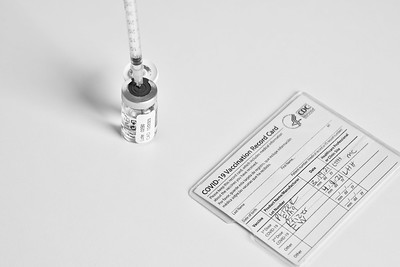Vaccination incentives are among the latest back-to-school trends for community college students. Fresno City College in Fresno, CA is offering vaccinated students a $250 voucher to the campus bookstore. West Hills Community College in Coalinga, CA has skipped the voucher and will just fork over $250 in cash for students who upload an image of their vaccination cards by November 1. Earlier today, Mott Community College in Flint coughed up a tuition credit worth $750 for students who provide vaccination proof. Other community colleges will offer a range of vaccination incentives, including Amazon gift cards, free meals, books, apparel and more.
Good health and doing one’s part to slow the spread of COVID-19 are probably among the best vaccination incentives, but college students would do well to take advantage of the good will while it lasts.
While Mott was giving away free college classes, Supreme Court Justice Amy Coney Barrett was telling students at Indiana University to get the vaccine. Coney Barrett delivered the bad news to a group of IU students who hoped to persuade the Supreme Court that campus-wide vaccination mandates infringed on their rights.
Apparently, vaccine mandates are not as legally sketchy as the students hoped. Alas, Jacobson v. the Commonwealth of Massachusetts 197 U.S. 11 (1905) lives to die some other day.
In-person learning is a valuable vaccination incentive
As the pandemic staggers toward Year 3, vaccination incentives will give way to vaccination mandates. A WCC student I know recently complained that the College quietly converted two of their three fall in-person classes to virtual classes. The student was frustrated that WCC has not demanded that its faculty, students, staff and visitors vaccinate.
They even offered the following prescription: WCC should reserve in-person classes for fully vaccinated faculty and students. Those who choose not to vaccinate should enroll in virtual and online classes only. Finally, WCC should do everything in its power to prevent unvaccinated individuals from coming to campus for any reason.
That’s a pretty good vaccination incentive. If you want to sit in a classroom, vaccinate. Want face-to-face or hands-on learning experiences? Vaccinate. Don’t like Zoom School? Get the vaccine. Want to graduate? Vaccinate!
Not only can colleges and universities require students to vaccinate, but they can also require employees to vaccinate. Don’t get me wrong. Spending hundreds of thousands of dollars on new HVAC systems is good. WCC should have done that years (and in some cases decades) ago. The right kind of HVAC systems can prevent airborne illnesses and save lives. But requiring people who come to campus to vaccinate is – and should be – the first line of defense against COVID-19. People who come to WCC should not rely on HVAC systems for protection when a vaccine is readily available.
The Supreme Court just regifted vaccine mandates
There’s plenty of legal cover to issue a vaccination mandate, so the only thing missing is the will to issue one. The University of Michigan, Michigan State University and Wayne State University will require all faculty, students, and staff to vaccinate. These universities have been on the front lines of the pandemic for the last 18 months. So, they have seen exactly what this virus can do.
One thing it is doing is mutating. Each successive mutation is worse than the one before it. Mutation will continue as long as the virus circulates, so halting transmission will stop mutation.
Rather than quietly shifting classes away from in-person delivery, the WCC administration should simply insist that all students vaccinate. Shifting in-person classes to virtual or online ones merely enables the unvaccinated to distribute the consequences of their poor decisions to the rest of the community. Reserving in-person interactions for the fully vaccinated enables those students to reap the benefits of in-person learning. It also isolates the consequences of poor decision-making or inaction to the unvaccinated.
Photo Credit: The Focal Project , via Flickr











